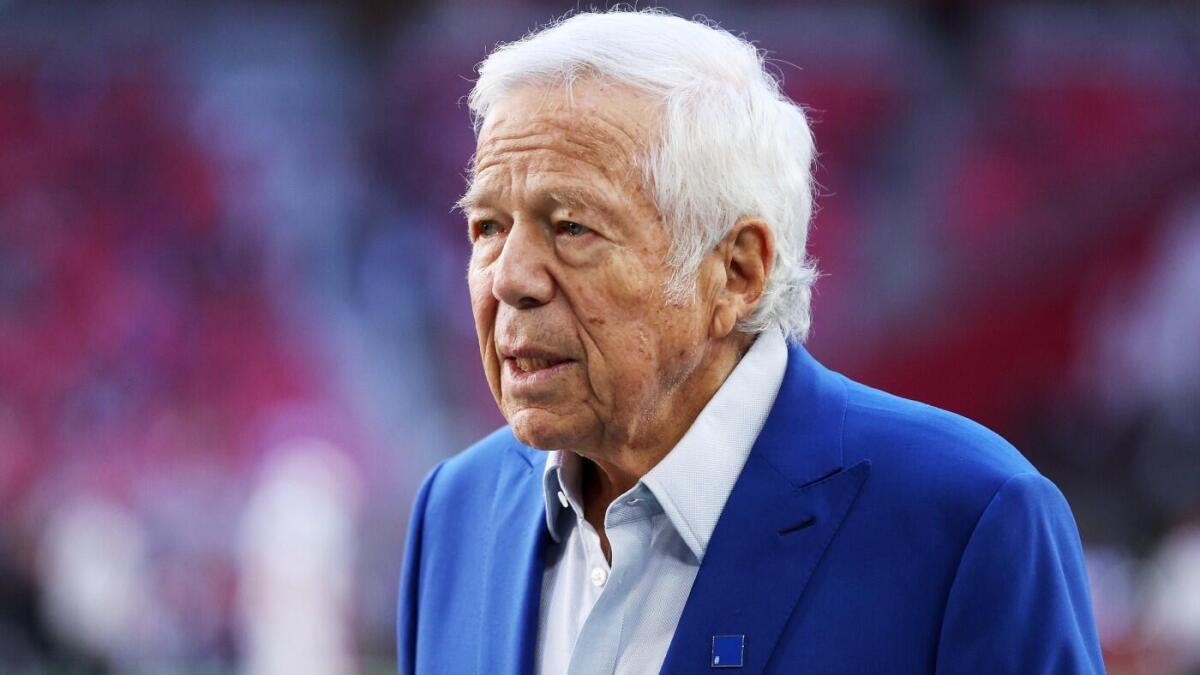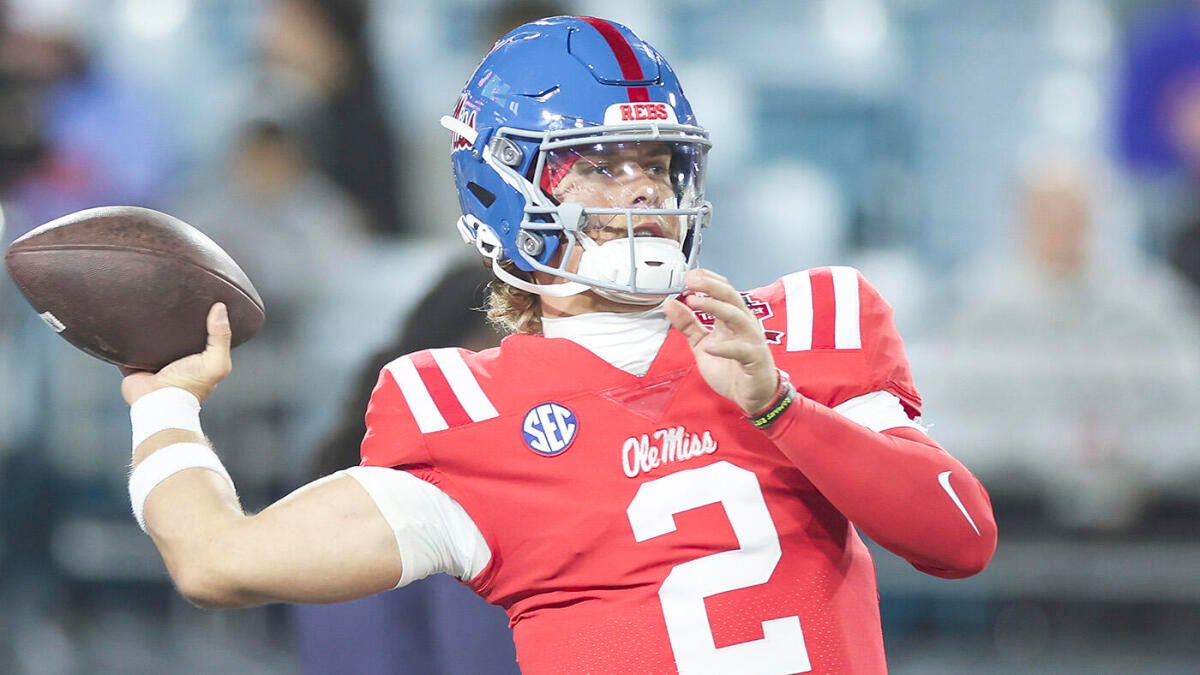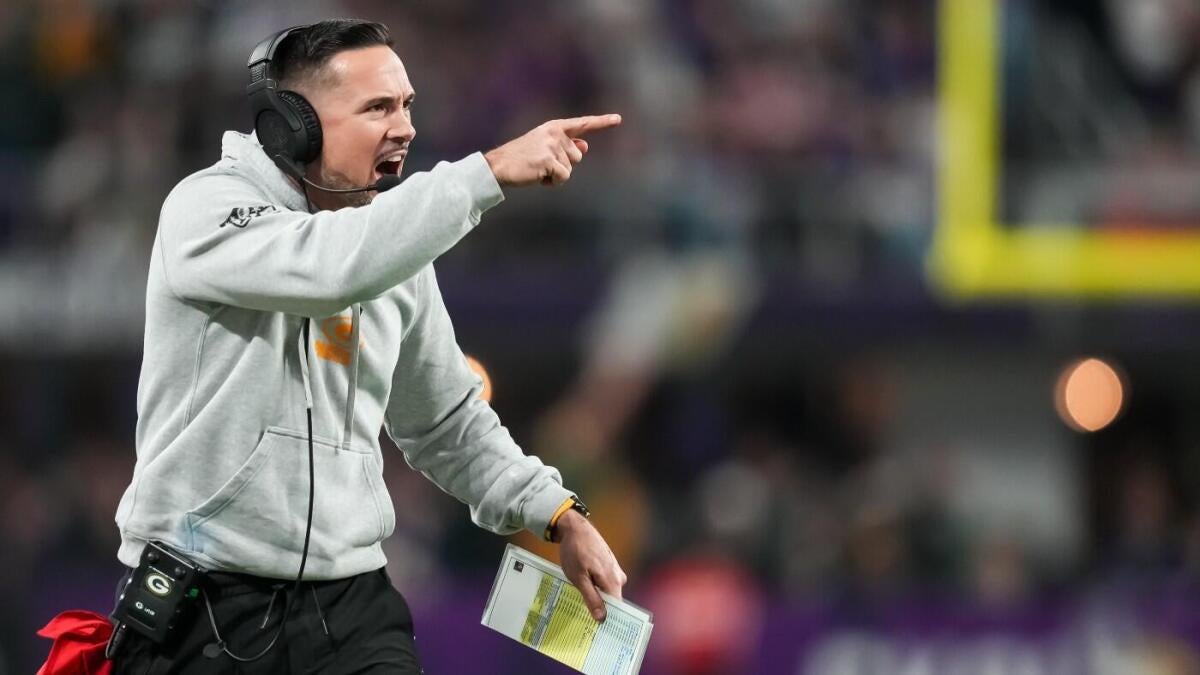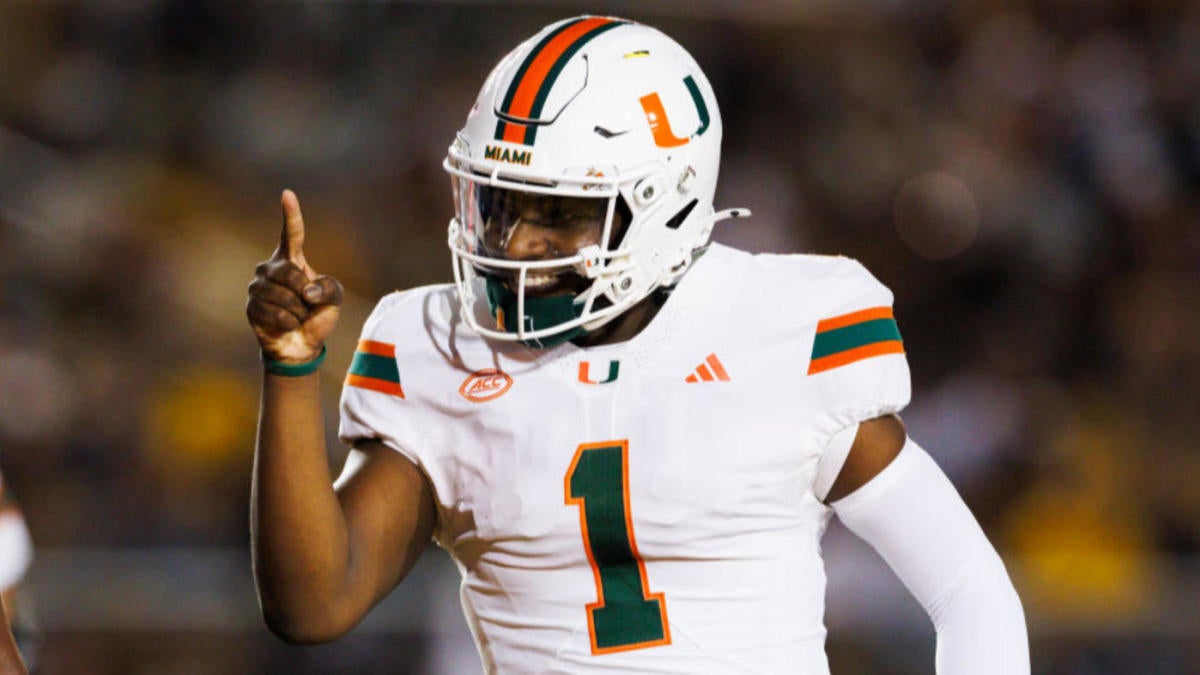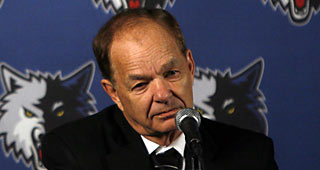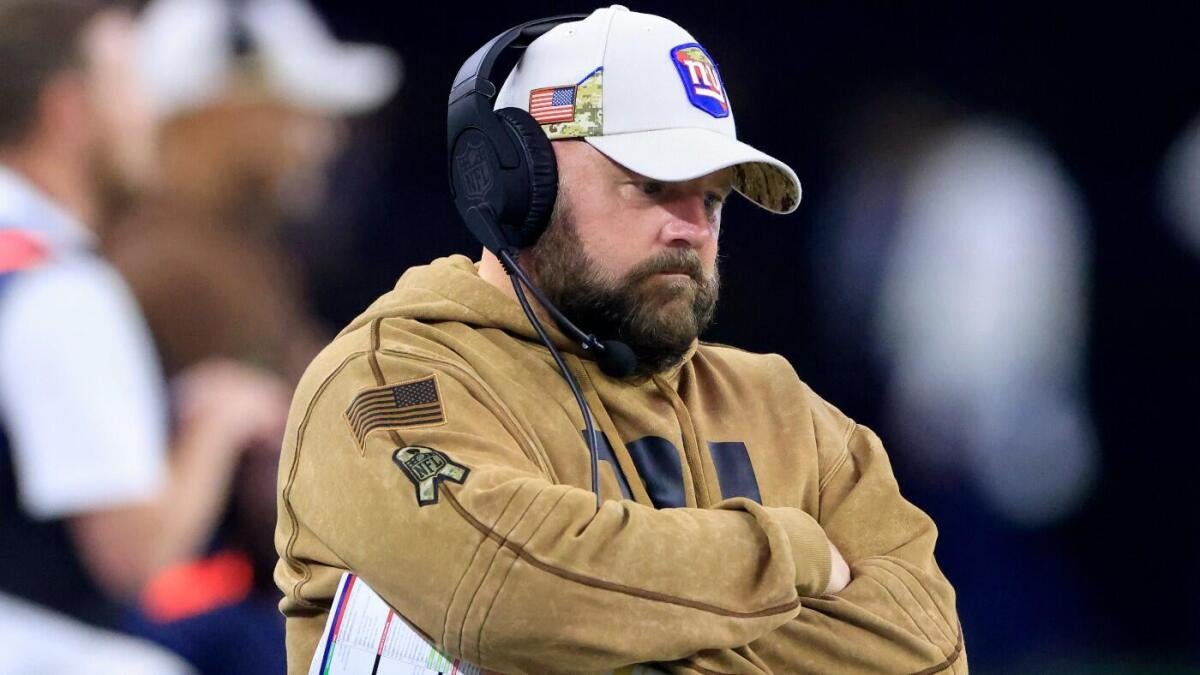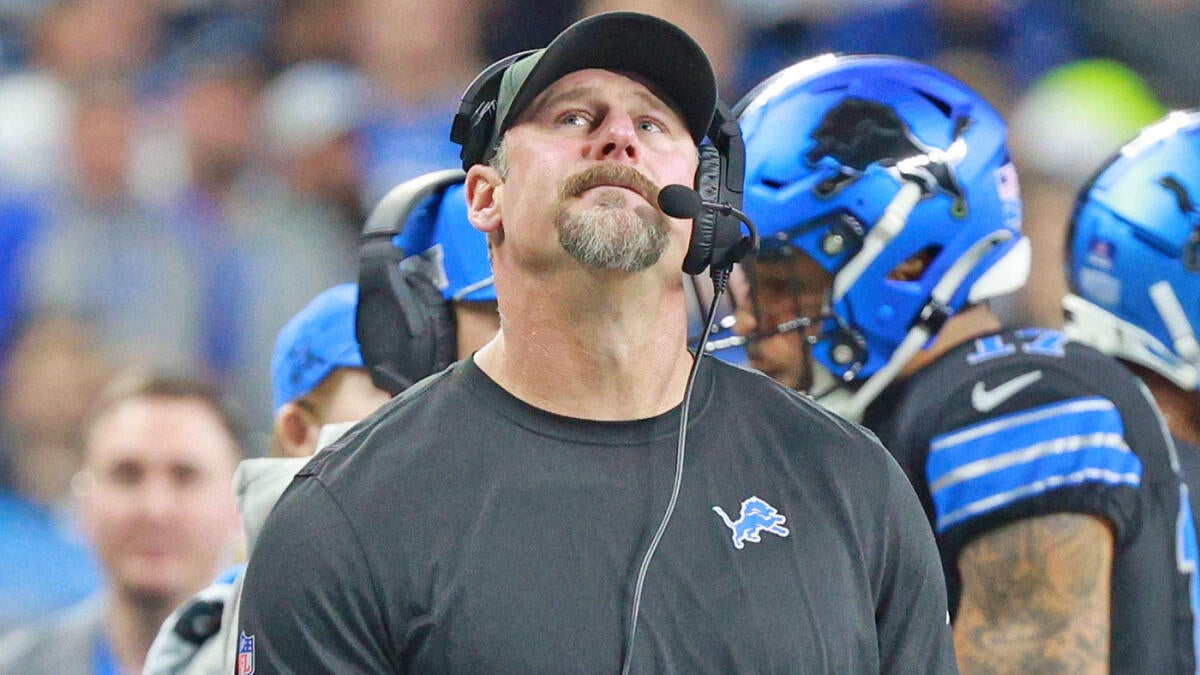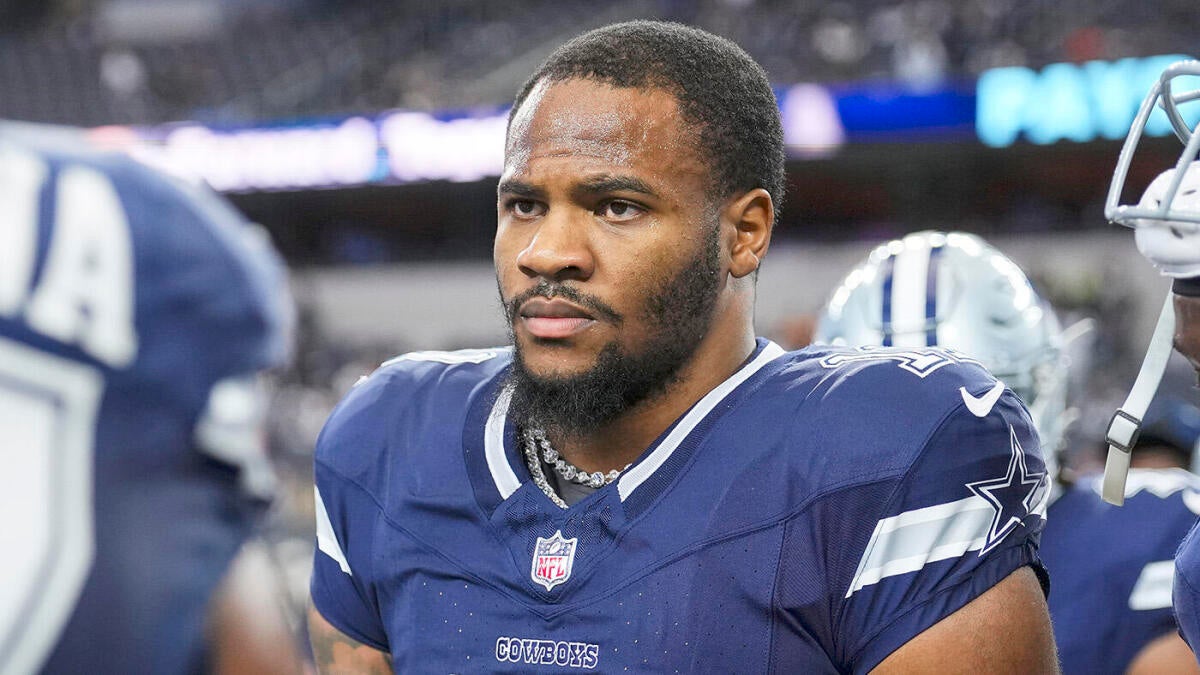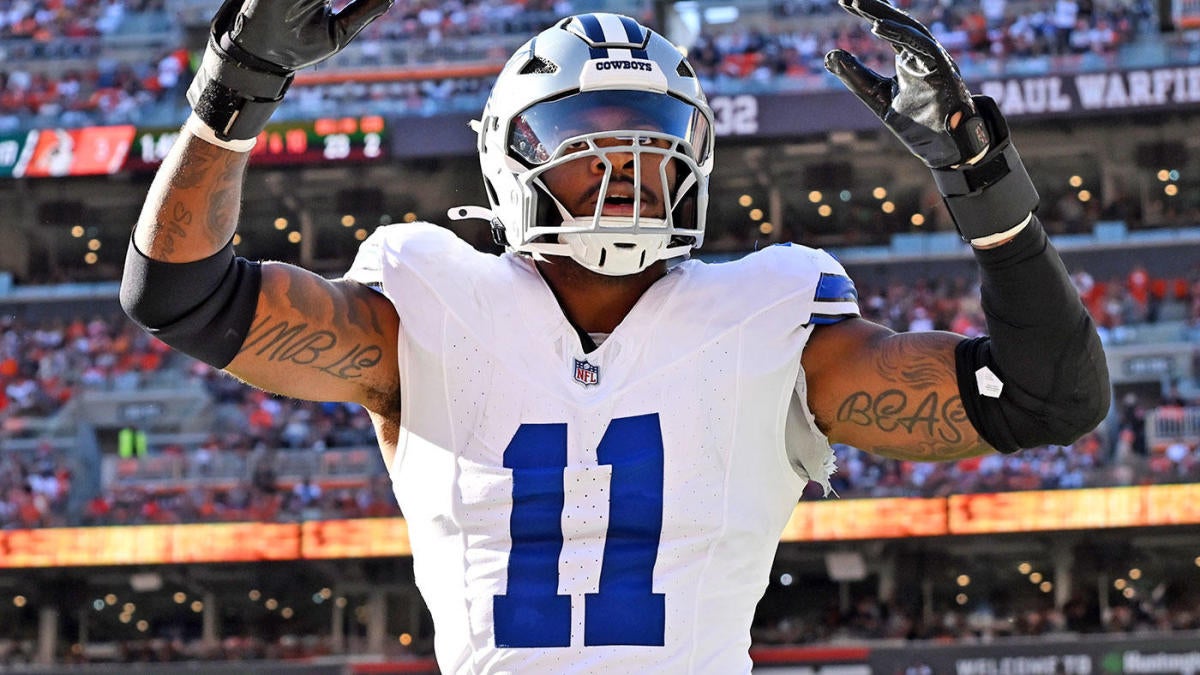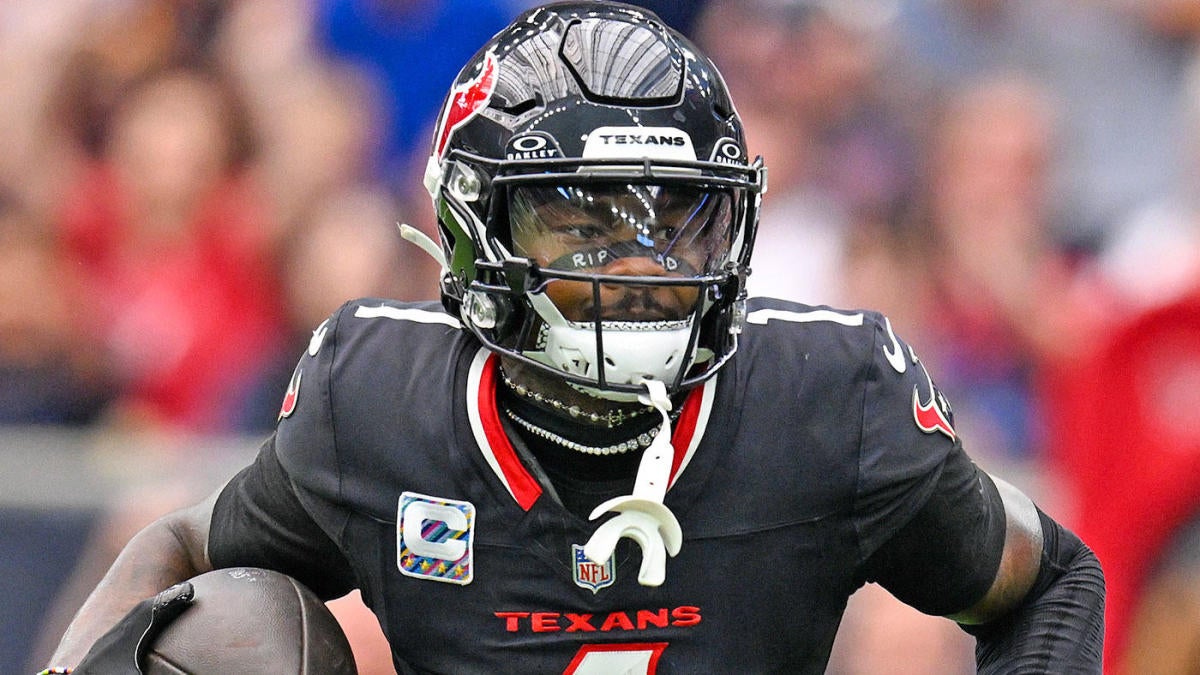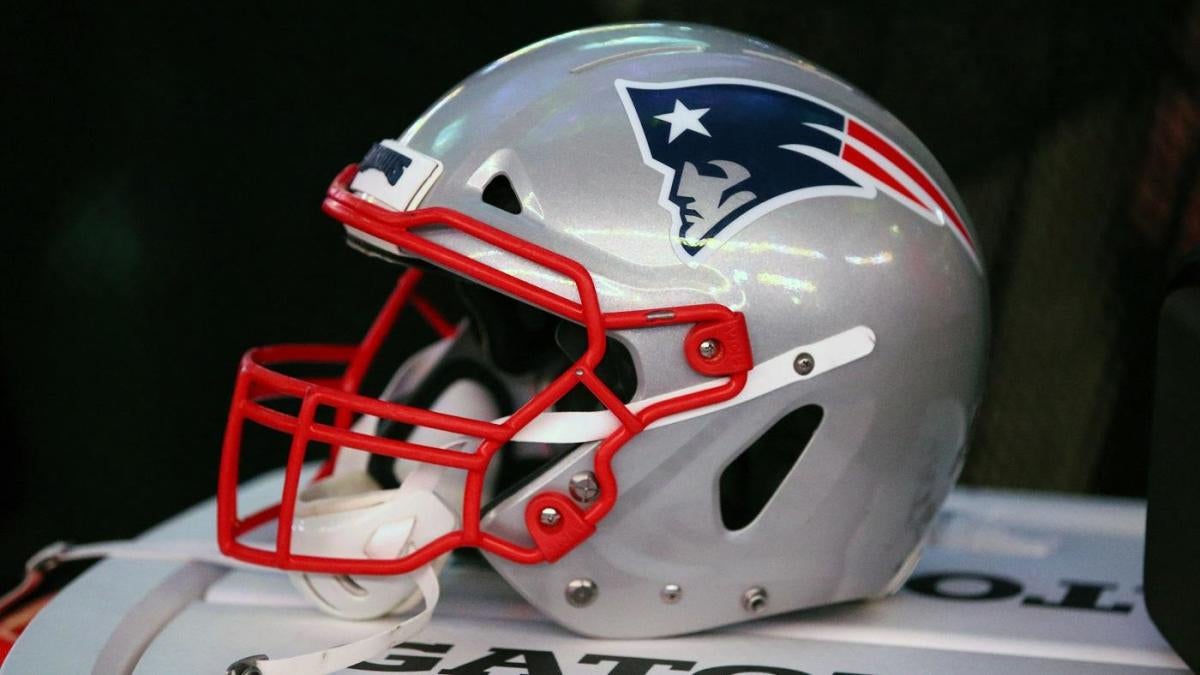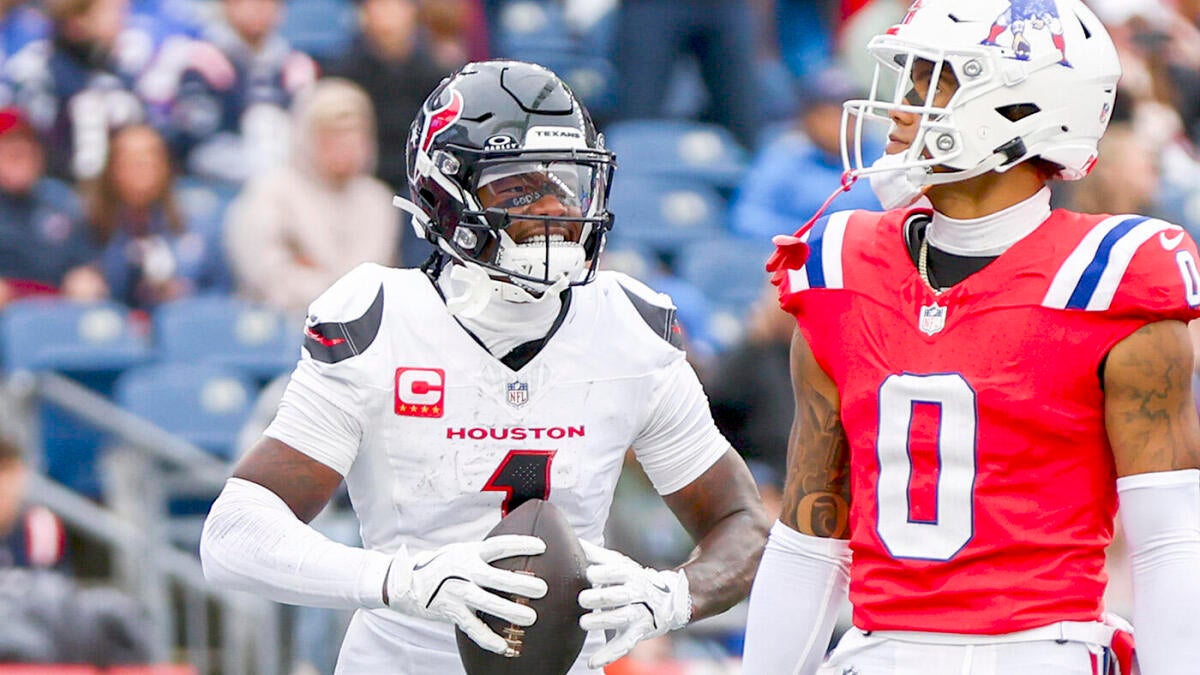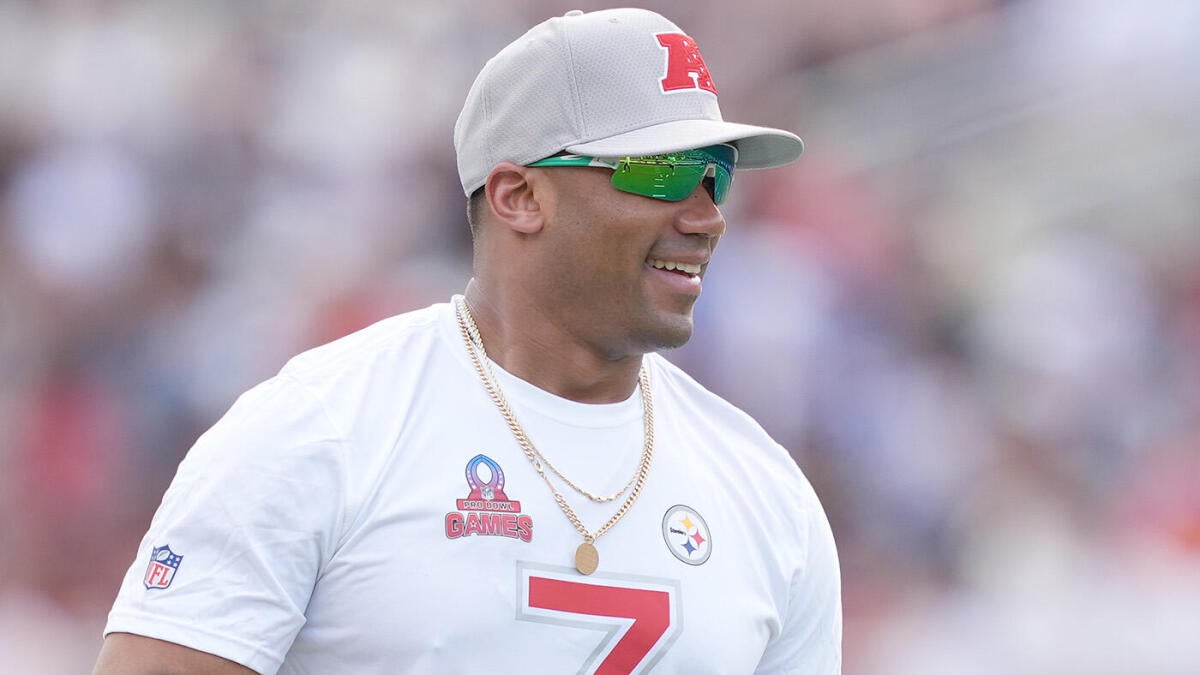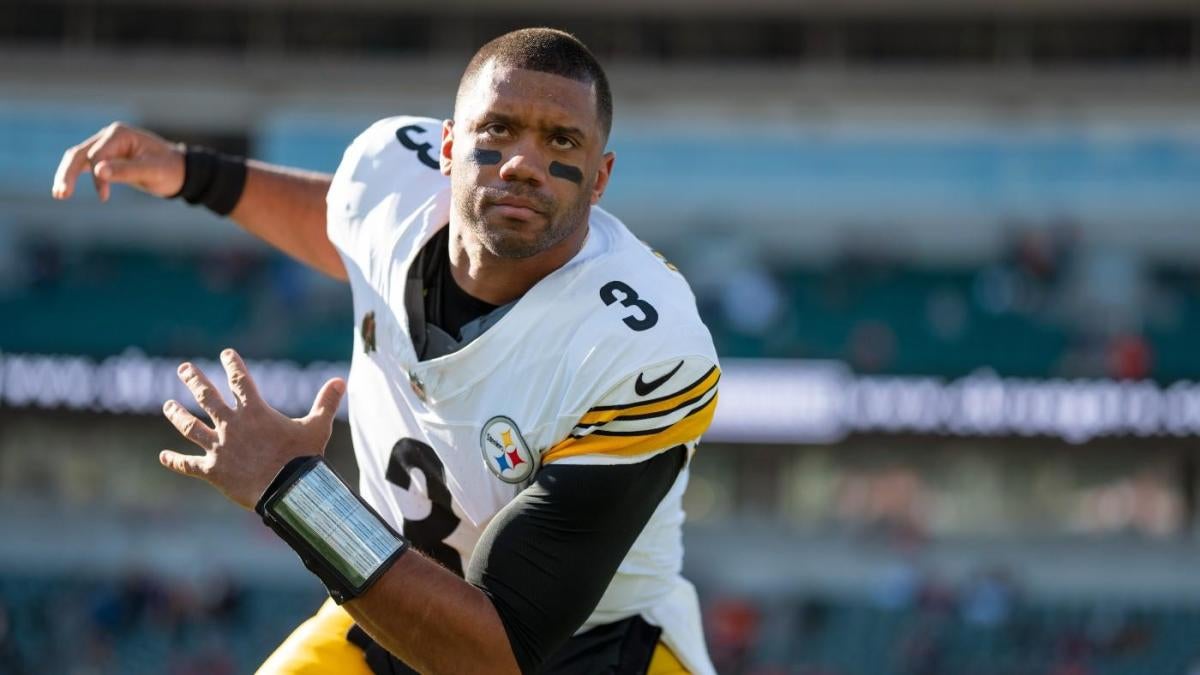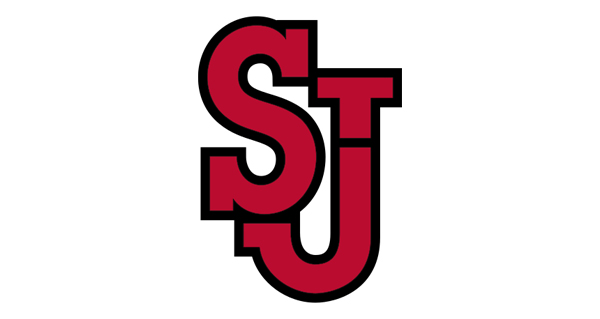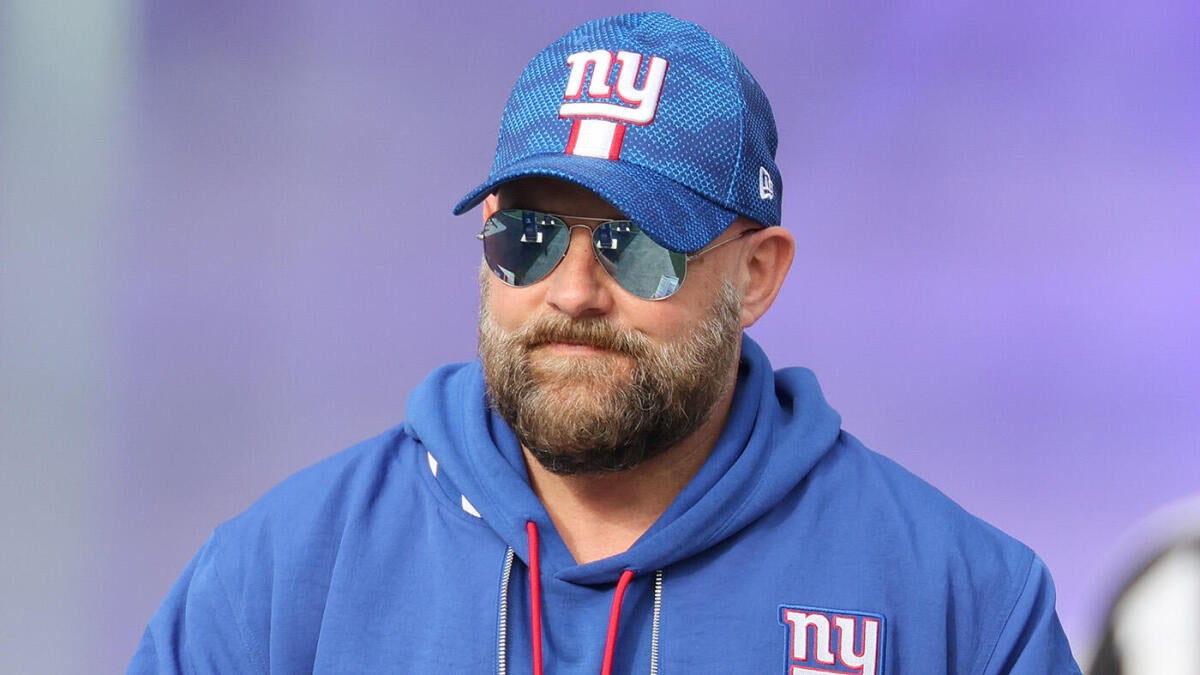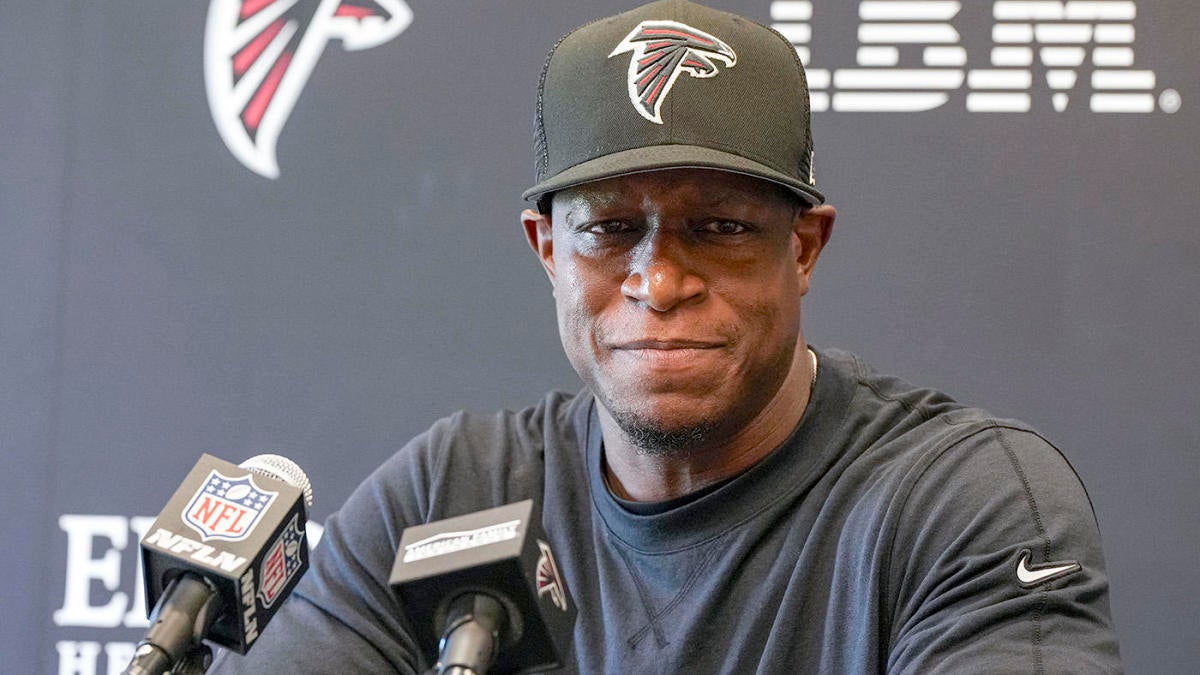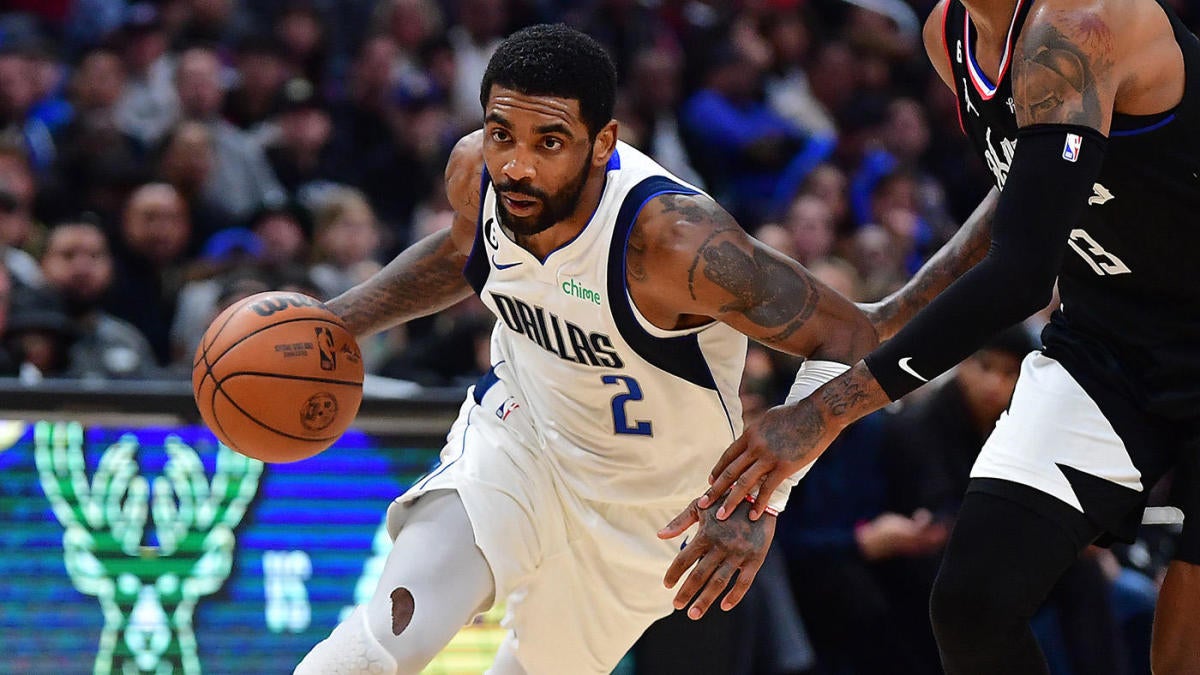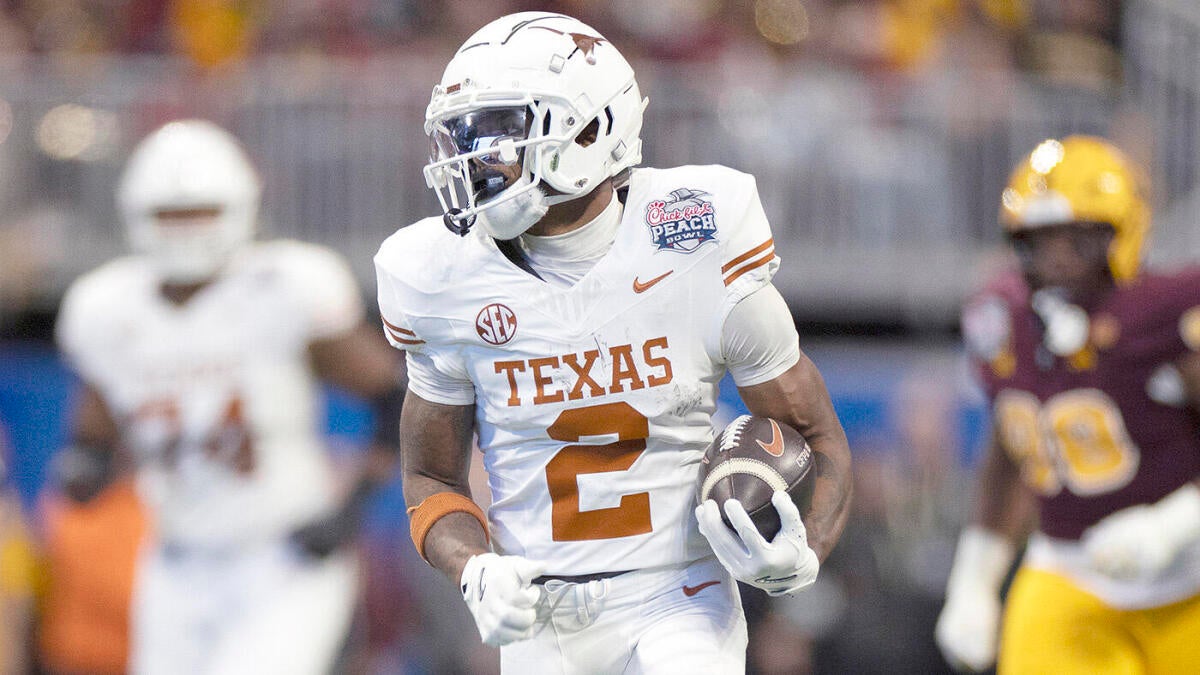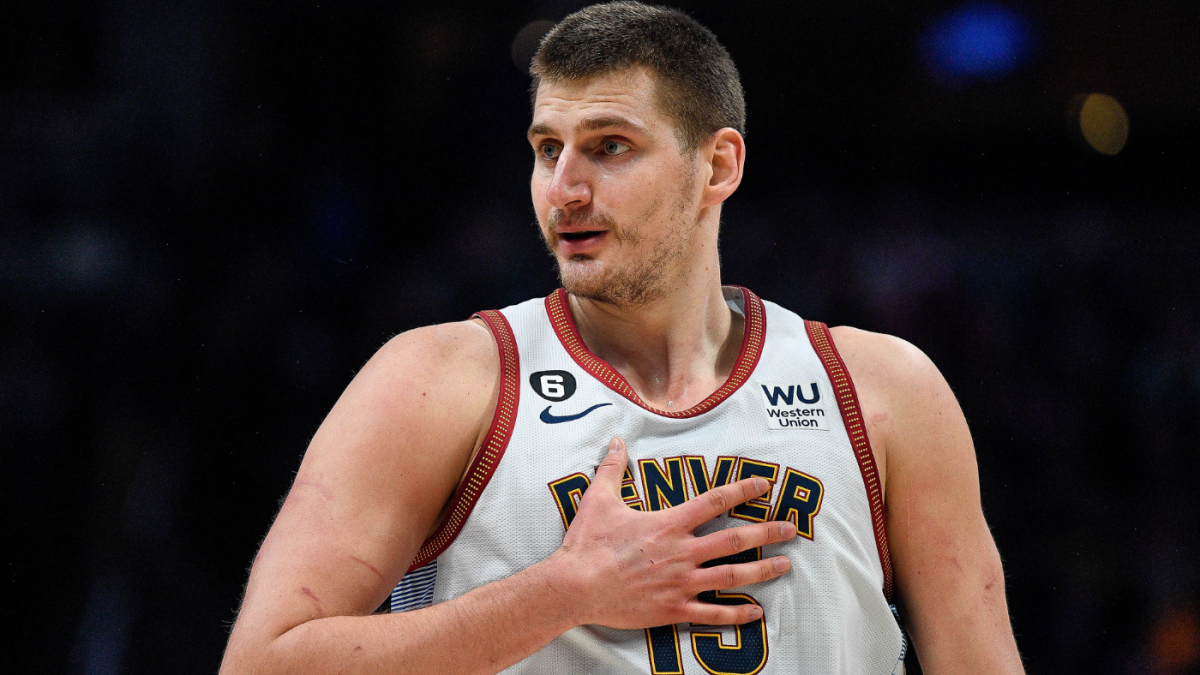

What exactly is voter fatigue? It’s perhaps the most-discussed element of the 2023 NBA MVP race, and yet it seems to lack a specific definition. On the most basic level, it refers to the idea that awards voters tend to favor newer candidates. When an incumbent or established winner seeks a second trophy and loses to a newcomer, it is often invoked by the more experienced candidate’s supporters. “Voters are bored of Player X’s greatness,” they’ll say. It is a concept that is applied somewhat selectively.
After all, the NBA has awarded 67 regular-season MVP trophies, and more than one third of them (24 out of 67) have been given to just five players: Kareem Abdul-Jabbar, Michael Jordan, Bill Russell, Wilt Chamberlain and LeBron James. A total of 13 players have won the award in consecutive seasons, and other awards are even more dynastic. The last 30 Defensive Player of the Year awards have gone to just 16 different players, with four different players (Dikembe Mutombo, Ben Wallace, Dwight Howard and Rudy Gobert) winning it at least three times apiece. In those instances, voters seemingly experienced limited fatigue when evaluating established winners.
The idea tends to be most pervasive in one specific instance: when a player attempts to win a third consecutive MVP award. Russell and Chamberlain both managed the feat in the 1960s, but it has been done just once since. Larry Bird won it in 1984, 1985 and 1986. Otherwise? Abdul-Jabbar, Jordan and James, widely considered the three greatest players in NBA history, all came up short. Why is this happening? It seems unlikely that every single player worthy of winning consecutive MVPs would experience statistical decline in Year No. 3. This is where the idea of voter fatigue comes into play.
Most MVP candidates are judged against the field. Prior winners, however, are often judged against their past selves. Consider one infamous example. In 1997, Michael Jordan outplayed Karl Malone by most traditional MVP markers. He averaged 2.2 more points, won five more games, received more votes for Defensive Player of the Year (both were chosen for First-Team All-Defense) and, though they were not prevalent at the time, held the advantage in virtually every catch-all metric. Malone won the trophy.
Why? The simplest explanation is that 1997 Michael Jordan was better than 1997 Karl Malone but worse than 1996 Michael Jordan. One year earlier, he had two round numbers working in his favor: 70 wins and 30 points per game. Those two numbers combined made him an infallible MVP choice. In 1997, Jordan came up just short at 29.6 points and 69 wins. In the grand scheme of things, the decline was paltry. Jordan still won the scoring title, and he still won as many games as any team in NBA history that he did not play for. But his resume, on paper, looked slightly worse. It opened the door for a challenger. Jackie McMullan wrote a famous Sports Illustrated profile of Malone that made his MVP case. The rest is history.
Take a glance at second-time MVP winners throughout history. Most of the time, there is some notable improvement over their first victory. Stephen Curry, Moses Malone and Larry Bird all boosted their scoring by at least 4.5 points. Jordan added 11 wins to his team’s ledger. Steve Nash and Nikola Jokic both managed to maintain most of the previous regular season’s success despite the absence of multiple significant teammates.
Meanwhile, we can point to a number of one-time winners who either maintained their prior performance or declined only slightly that never won it again. Russell Westbrook seemingly did the impossible when he averaged a triple-double in the 2016-17 season. He won the MVP in large part because he did so. But he went on to do so three more times without ever receiving another first-place vote.
From that perspective, Jokic followed the typical MVP trend. His second award was, in some notable way, different from his first. But the public has raised the bar considerably as he’s competed for his third. He’s not getting compared to his own prior MVP seasons. He’s getting compared to Michael Jordan’s. There is a certain subset of pundits, some of whom have votes and some of whom don’t, who believe that any player chasing an honor that eluded LeBron James and Kareem Abdul-Jabbar should continue to elude any lesser player.
That is especially true to voters who feel as though previous third-time candidates had their playoff shortcomings held against them, as Jokic has never reached the NBA Finals. And while we cannot accurately measure the impact of racial bias on awards voting, we should at least acknowledge that the last player to win three straight MVPs, Bird, was white, and that Jokic, who is currently favored to do so, is as well. Of the seven back-to-back winners between Bird and Jokic, six were Black. Steve Nash was the only exception. A Reddit audit of last year’s voters found that 65 of the 100 were white, not including the 101st vote, which goes to the fans.
And so, fair or not, the 2022-23 regular-season NBA MVP award has come to represent so much more than who has been the most valuable player of this, single season. It is an evaluatory reckoning, a chance not to relitigate old awards, but the manner in which they were awarded. Are we approaching this award fairly, and if we aren’t, what should change moving forward?
Those are big questions. Let’s start somewhere smaller and see where it takes us: since Chamberlain and Russell won three consecutive MVPs, there have been 11 different seasons in which a player tried to win their third straight and failed. What happened in those seasons? Is there evidence supporting voter fatigue? What similarities do our would-be three-peaters share? What does the voting pool value, and how have those values changed over the years? Our story begins, as many great basketball stories do, with Kareem Abdul-Jabbar.
1973: Kareem Abdul-Jabbar vs. Dave Cowens
| Points Per Game | Rebounds Per Game | Assists Per Game | Wins | |
|---|---|---|---|---|
Abdul-Jabbar Years 1-2 | 33.2 | 16.3 | 3.9 | 64.5 |
Abdul-Jabbar Year 3 | 30.2 | 16.1 | 5 | 60 |
Cowens | 20.5 | 16.2 | 4.1 | 68 |
MVP voters have never been as wrong as they were in 1973. Abdul-Jabbar scored 10 more points per game than Cowens while shooting 10 percentage points higher from the field. He was a better playmaker. There obviously aren’t comprehensive defensive metrics available from the era, but neither earned All-Defense honors. Abdul-Jabbar led the NBA in the few available all-around metrics we have that date that far back, such as Win Shares and PER. All Cowens really had in his favor in 1973 were eight extra wins.
We must again note that tracking racial bias is not quantifiably possible, but Cowens is white, Abdul-Jabbar is Black, and this season came during a period of racial tension both within the United States as a whole and within the NBA specifically. The league’s racial demographics began to shift during the 1970s, and there was fear in and around the league that the NBA was “too Black,” which Nuggets general manager Carl Scheer even spoke about on the record to Sports Illustrated in 1979. “This is something we must no longer whisper about,” Scheer said at the time. “It’s definitely a problem and we, the owners, created it. People see our players as being overpaid and underworked, and the majority of them are Black.” The conditions certainly existed for race to impact this vote even if we can’t prove definitively that it did. What we can say, relatively comfortably, is that Abdul-Jabbar should have won.
Here’s the twist: the media didn’t vote for Cowens. The players did. Until the 1980-81 season, the MVP was voted on by players, not reporters. This is not meant to exonerate poor media decisions that would come later or suggest that players were or are unfit to vote for the MVP themselves. It is, rather, a suggestion that any large group, regardless of who that group is made up of, is going to be fallible.
The logic that likely led the players to vote for Cowens over Abdul-Jabbar are similar to the logic that has led to a few media head-scratchers. Abdul-Jabbar was still the best player in the world, but he had taken a stepback statistically and was coming off of a playoff disappointment against the Lakers. Cowens had inferior numbers, but his team won more games. Perhaps race played a part in the decision, and while the league’s demographics were changing at the time, more NBA players were white then than now. Ultimately, though, we have a few telltale signs of voter fatigue here. Abdul-Jabbar was great, but not as great as he had been. He’d won in the past. There was an argument to be made for someone else, even if it was shallow. So Cowens won.
1978: Kareem Abdul-Jabbar vs. Bill Walton
| Points Per Game | Rebounds Per Game | Assists Per Game | Wins | |
|---|---|---|---|---|
Abdul-Jabbar Years 1-2 | 27 | 15.1 | 4.5 | 46.5 |
Abdul-Jabbar Year 3 | 25.8 | 12.9 | 4.3 | 45 |
Walton | 18.9 | 13.2 | 5 | 58 |
The story of Walton vs. Abdul-Jabbar is fairly similar to the battle between Cowens and Abdul-Jabbar. One player was superior statistically, but not as dominant as he previously had been. The other put up inferior numbers on a better team. A notable difference, though, was that when the two of them were on the floor, Walton’s team was far better. He played in 58 games and the Blazers went 48-10. At that pace, had he stayed healthy, Portland would have won 68 games. However, Walton ultimately did get hurt, and in the process sticks out as one of history’s great outliers. Walton missed 24 games in his MVP season. No other MVP has missed more than 11.
We should again note that players voted on this award, not media, and this result suggests that players were perhaps less concerned with availability than reporters are. It is such a historic outlier that we can’t really draw conclusions from it, though, and this could just as easily have been a case of voter fatigue working against Abdul-Jabbar. It was likely a bit of both. Abdul-Jabbar’s record was seemingly held against him in the race with Cowens, yet that injustice was rectified in 1976, when Abdul-Jabbar won with a record below .500. This was relatively common at the time. Six players have won MVP with at least 33 losses and four of them came between 1976 and 1982. In other words, it doesn’t appear as though players were working with defined criteria. Sometimes they favored statistics and sometimes they favored winning. They leaned on winning here to Abdul-Jabbar’s detriment.
1984: Moses Malone vs. Larry Bird
| Points Per Game | Rebounds Per Game | Assists Per Game | Wins | |
|---|---|---|---|---|
Malone Years 1-2 | 27.8 | 15 | 1.5 | 55.5 |
Malone Year 3 | 22.7 | 13.4 | 1.4 | 52 |
Bird | 24.2 | 10.1 | 6.6 | 62 |
No need to waste much time here. Malone slipped statistically in his second straight MVP season, but his team won 65 games, so he repeated. His team came back down to Earth a year later right as Bird and the Celtics ascended. That made this a fairly straightforward MVP. There’s no real evidence of voter fatigue, just one player grabbing the torch from another.
1991: Magic Johnson vs. Michael Jordan
| Points Per Game | Rebounds Per Game | Assists Per Game | Wins | |
|---|---|---|---|---|
Johnson Years 1-2 | 22.4 | 7.2 | 12.1 | 60 |
Johnson Year 3 | 19.4 | 7 | 12.5 | 58 |
Jordan | 31.5 | 6 | 5.5 | 61 |
The 1991 race displayed an unusual bit of voter fatigue. Most would agree that Jordan was the proper winner over Johnson based on their statistical profiles, and yet… Jordan was better a year earlier. He averaged more points at similar efficiency while playing more minutes and racking up more assists and rebounds. Yet, in one of history’s closest races, Johnson won a three-way battle against Jordan and Charles Barkley.
While we’d likely agree that Jordan was better than Johnson at this point in history, very little actually changed between 1990 and 1991. Both Jordan and Johnson scored fewer points. Jordan won a few more games, but the gap between their teams was just three wins. Voters who picked Johnson in 1990 should have had very little reason to swing to Jordan in 1991, at least on paper. The tally makes it clear that a few did. Johnson earned 27 first-place votes in 1990 and only 10 in 1991.
What swung this race, though, was the absence of Barkley. He actually received more first-place votes than Jordan or Johnson in 1990, taking 38 of them. It seems as though most of the Barkley voters swung to Jordan in 1991, which won him the award. But that gap of 17 first-place Johnson votes? We might be able to attribute some of that to voter fatigue.
1993: Michael Jordan vs. Charles Barkley
| Points Per Game | Rebounds Per Game | Assists Per Game | Wins | |
|---|---|---|---|---|
Jordan Years 1-2 | 30.8 | 6.2 | 5.8 | 64 |
Jordan Year 3 | 32.6 | 6.7 | 5.5 | 57 |
Barkley | 25.6 | 12.2 | 5.1 | 62 |
There really wasn’t much of a difference between Jordan’s 1993 campaign and the previous two he’d won. He scored slightly more points in 1993, but traded some efficiency for that volume. He won “only” 57 games, but that figure looks less impressive next to the 128 combined wins he’d picked up in the previous two seasons. He led the league in every relevant advanced metric currently available to us.
But like 1997, Jordan let the door creak only slightly. By winning a few less games and shooting below 50% from the field for the first time since 1987, he gave voters a bit of room to believe that he wasn’t quite as good as he’d been in previous seasons. Barkley was less efficient than he was when he nearly won in 1990, but all of his other numbers were in line with his peak, and his 62 wins stood out after a poor 76ers team allowed him to win just 35 the year prior. All of this paints a fairly clear picture of voter fatigue.
2004: Tim Duncan vs. Kevin Garnett
| Points Per Game | Rebounds Per Game | Assists Per Game | Wins | |
|---|---|---|---|---|
Duncan Years 1-2 | 24.4 | 12.8 | 3.8 | 59 |
Duncan Year 3 | 22.3 | 12.4 | 3.1 | 57 |
Garnett | 24.2 | 13.9 | 5 | 58 |
Another easy one. Duncan scored a few fewer points in 2004, but Garnett beat him across the board statistically while edging him out for the No. 1 seed in the Western Conference. Duncan finished in second without receiving a single first-place vote.
2007: Steve Nash vs. Dirk Nowitzki
| Points Per Game | Rebounds Per Game | Assists Per Game | Wins | |
|---|---|---|---|---|
Nash Years 1-2 | 17.2 | 3.8 | 11 | 58 |
Nash Year 3 | 18.6 | 3.5 | 11.5 | 61 |
Nowitzki | 24.6 | 8.9 | 3.4 | 67 |
Both of the following things can be true:
- Based on the typical statistical profile of an MVP winner, you can argue that Nash never should have won an MVP.
- Nash still suffered from voter fatigue in 2007.
To be clear, I am not arguing that Nash deserved to win in 2007. I am merely suggesting that voters held him to a higher standard in 2007 than they did in 2005 and 2006, because Nash lost despite his 2007 season being better than his 2005 or 2006 campaigns. It was his most efficient season of the trio, and the only time in his career that he led the NBA in effective field goal percentage. He averaged a career-high 11.6 assists and came in 0.2 points below his career scoring high of 18.8 points per game. The Suns won 61 games. Nowitzki’s Mavericks won 67, but ironically, he was worse individually than he had been during Nash’s two prior MVP seasons. His team was just better.
Kobe Bryant and LeBron James probably deserved to figure more into this discussion than they did at the time, but it ultimately boiled down to Nash and Nowitzki. Dirk jumped from 14 first-place votes a year earlier to 83 in 2007 despite averaging fewer points and playing fewer minutes. His team won 67 games, but it had won 60 in the year prior. This specific period of NBA history tended to favor winning more than most, as eight of the previous 10 MVPs went to players who had the best record in their conference that season… but one of the exceptions was 2006 Nash. Looking back, Nowitzki is probably the right MVP from this year, and if he isn’t, Bryant and James both have claims. But it isn’t fully clear what changed for voters between Nash’s first two MVPs and his bid for a third.
| Points Per Game | Rebounds Per Game | Assists Per Game | Wins | |
|---|---|---|---|---|
James Years 1-2 | 29.1 | 7.4 | 7.9 | 63.5 |
James Year 3 | 26.7 | 7.5 | 7 | 58 |
Rose | 25 | 4.1 | 7.7 | 62 |
In 2011, LeBron James led Derrick Rose in points, rebounds and steals per game, field goal, true shooting and effective field goal percentage, Win Shares, Box Plus-Minus and Value Over Replacement Player while earning First-Team All-Defense honors.
In 2011, Rose led James in 3-point percentage (by 0.02 percentage points), assists and wins. End of list.
Rose won the award. It looks more and more ridiculous with each passing year. The logic, at the time, was that Rose had led an inferior team (that had dealt with injuries) to a better record than James, who was playing on a super team. This was in an era before the drawbacks of super teams were really understood. Remember, Jeff Van Gundy earnestly believed at the time that the Heat would break Chicago’s record of 72 regular-season wins right away. Expectations were that high for James and the Heatles. Completely ignored at the time was the fact Miami had only six players making more than the minimum salary and that two of them, Udonis Haslem and Mike Miller, combined to play just 58 total games.
Telltale signs of voter fatigue certainly existed. LeBron’s individual numbers did decline. But voter fatigue wasn’t the predominant factor here. Those enormous expectations, coupled with lingering resentment over The Decision, were ultimately James’ downfall. On one side of the debate was the best player in the world, who had just left a 60-win team to join a group he claimed would win eight championships only to lose more games than he had in either of his two previous MVP seasons while posting inferior numbers. On the other was the newcomer playing for the No. 1 seed in his hometown.
Did it matter that Rose’s No. 1 seed came on the back of No. 1 defense that he was not a major part of? In the end, it didn’t. James probably should have won five MVPs in a row. If he hadn’t, Dwight Howard was the stronger individual challenger. But no MVP race has ever been as defined by narrative as the one that immediately followed The Decision.
| Points Per Game | Rebounds Per Game | Assists Per Game | Wins | |
|---|---|---|---|---|
James Years 1-2 | 26.9 | 8 | 6.8 | 61.5 |
James Year 3 | 27.1 | 6.9 | 6.3 | 54 |
Durant | 32 | 7.4 | 5.5 | 59 |
Individually, 2014 James and 2013 James were nearly identical. It was the league around them that changed. His Miami roster had grown incapable of supporting him across 82 games. Dwyane Wade played just 54 games and averaged below 20 points per game for the first time since his rookie season. Chris Bosh also averaged his fewest points since his rookie season. No one else on the team averaged double-digit points. The 33-year-old Haslem was in his second-to-last season as a rotation player. Rashard Lewis (34), Shane Battier (35) and Ray Allen (38) were in their final NBA seasons. The Heat just got old overnight, and despite getting the same performance out of James, they dipped from 67 to 54 wins.
Kevin Durant, meanwhile, managed to win five more games than Miami despite missing Russell Westbrook for 36 games. Throw in career-highs in points and assists and he was largely treated as a shoo-in. Could voters have been a bit more understanding of LeBron’s circumstances? Perhaps. But he never had a worthier challenger in those three years than Durant, and he’s ultimately competing against the field, not himself. Durant was the only player in that stretch to both outscore James and win more games than him in the same season. He led James in most of the all-in-one metrics as well. There might have been a bit of fatigue involved here, but Durant won the award fair and square.
2017: Stephen Curry vs. Russell Westbrook
| Points Per Game | Rebounds Per Game | Assists Per Game | Wins | |
|---|---|---|---|---|
Curry Years 1-2 | 26.9 | 4.8 | 7.2 | 70 |
Curry Year 3 | 25.3 | 4.5 | 6.6 | 67 |
Westbrook | 31.6 | 10.7 | 10.4 | 47 |
There are bits of several older races embedded within this one, which Curry, who finished in sixth place, did not meaningfully participate in. There was fear that he and Kevin Durant would split Golden State’s vote, but that problem solved itself organically when Durant missed 20 games. Instead, Curry was burdened by expectations in the same way that 2011 James was. His numbers went down because he had to accommodate Durant, yet with his new superstar teammate, his team won six fewer games.
Yet if you look at the resumes in a vacuum, Curry vs. Westbrook feels a bit like the reverse of Abdul-Jabbar vs. Walton. One candidate built an argument on stats. The other did so on winning. Westbrook’s 35 losses were the third-most ever for an MVP. In fact, he was the first MVP to lose 30 or more games since Jordan in 1988. But he averaged a triple-double. Runner-up James Harden nearly matched that feat, and he did so more efficiently. Curry was not involved in this race, and that represents a fairly meaningful shift in voter priorities.
The best player on the best team finished in sixth because voters had begun emphasizing indivdual performance and considering the idea of value as it related to teammates. Durant and Nash had capitalized on teammate injuries in the past, but Westbrook’s entire case was defined by Durant’s absence. His usage rate of 41.5% was and remains the highest in NBA history. Similar candidates like 2006 Kobe Bryant (third-highest usage rate ever at 38.7%, 45 wins) failed to win MVP. The lesson here is that the voting body changes with time.
| Points Per Game | Rebounds Per Game | Assists Per Game | Wins | |
|---|---|---|---|---|
Antetokounmpo Years 1-2 | 28.5 | 13 | 5.8 | 61.5 |
Antetokounmpo Year 3 | 28.1 | 11 | 5.9 | 52 |
Jokic | 26.4 | 10.8 | 8.3 | 54 |
This race is probably the most important through the lens of 2023 given the similarity of the candidates and voting pools. We’re only two years removed from Antetokounmpo’s bid for a third straight MVP. He obviously came up short, but as Jokic has chased his own three-peat, Antetokounmpo supporters have argued that he is not being held to the same standard.
There were voters in 2021 who made it clear that they held Antetokounmpo’s playoff losses against him. There haven’t been as many doing the same to Jokic, but Antetokounmpo had lost as a healthy favorite following both of his MVP seasons, while Jokic had lost as an underdog missing his best teammate (Jamal Murray) in both runs and his second-best teammate (Michael Porter Jr.) in the second. We cannot adequately quantify voter attitudes, but we can safely say that neither entered the third season of their run expected to win a third straight. Notably, though, Vegas gave Antetokounmpo a significantly better chance of doing so.
- In 2021, Antetokounmpo entered the season with the second-best MVP odds. The odds varied from book-to-book, but the most frequent number was plus-480, with only Luka Doncic ahead of him.
- In 2023, Jokic entered the season with either the fourth- or fifth-best odds, depending on the book. His odds were between plus-800 and plus-900, and Doncic, Antetokounmpo and Joel Embiid all finished ahead of him.
Vegas does not directly represent the voting body, but it is a predictive force. The books are aware of the same narratives as the fans and voters, likely more acutely so, and they determined that an Antetokounmpo three-peat was likelier than one from Jokic before their pursuits began. Even once those seasons were underway, neither was faring particularly well. Every year, ESPN’s Tim Bontemps takes several straw polls of likely voters to see where they are leaning. At the first 2021 straw poll, Antetokounmpo finished sixth place. At the first 2023 straw poll, Jokic finished in fifth. We have therefore established that, in both the preseason and partway through the season, neither was expected to win their third straight MVP.
We’ll get to Jokic in a bit, but for now, what prevented Antetokounmpo from jumping back into the race in 2021 as Jokic eventually would in 2023? Team performance. Antetokounmpo’s rebounding declined noticeably, and his advanced metrics fell from “best in the league” to “still excellent,” but the notable difference here was that his team, which had the best record in the NBA in the previous two seasons, had the eighth-best record in the NBA in 2021. They were expected to improve after the addition of Jrue Holiday, not go backward. While Antetokounmpo was the superior defensive player, the numbers suggested that he had slipped from his Defensive Player of the Year form as Milwaukee ranked ninth in the NBA in defense after leading the league by a mile in his two MVP years.
There were perfectly reasonable explanations for what was going on. Mike Budenholzer teams rely on depth as he intentionally limits how many minutes his starters play, and the Bucks lost a lot of depth in that offseason due to the Holiday acquisition and the hard cap it imposed on itself in free agency. Their defense declined because the Bucks strayed from their drop-coverage dogma to install a more versatile scheme that included switching knowing it would be necessary in the playoffs. However, this is ultimately a regular-season award, and Antetokounmpo’s team had a worse regular-season than voters were used to. That hurt him.
At the same time, Jokic had managed a better record than Antetokounmpo despite losing Murray to a torn ACL in April. He played in every game of the 2020-21 season while Antetokounmpo, proportionally speaking, missed more time than any MVP besides Walton (11 games in a 72-game season). Durability was a major talking point during this shortened season, as virtually every MVP candidate suffered an injury during the condensed schedule except for the winner. Jokic led the NBA in virtually every catch-all metric. Their scoring numbers, in both volume and efficiency, were nearly identical, but Jokic created more than four extra points per game through his assists.
You can read all of that and still believe Antetokounmpo (or Joel Embiid for that matter) should have beaten Jokic. The team decline may have been held against Antetokounmpo, but team performance has always been a relevant factor, and Jokic’s team won more games under more difficult circumstances. There may have been elements of voter fatigue at play here, and this wasn’t a slam dunk in either direction, but ultimately Jokic has enough working in his favor completely independent of Antetokounmpo’s supposed handicap to suggest that voters gave him the award on merit, even if you disagree with their measures of merit.
So… why isn’t voter fatigue affecting Nikola Jokic?
We’ve just spent 5,000 words proving that voter fatigue exists in some form. It just isn’t quite as simple as “once a player wins twice in a row, voters refuse to vote for him.” Sheer boredom likely cost Jordan. It may have cost Abdul-Jabbar, and there are other isolated pockets of fatigue that would explain voter inconsistencies even when we believe that voters made the right choice. But ultimately, we’ve isolated a few trends that might explain some of what is going on here.
- Most two-time MVPs have better overall cases in their first two seasons than the third. There might be a slight statistical dip. There might be a drop in team performance. But something looks worse than it has in previous seasons. The player gets judged unfavorably to his prior self.
- Voting tastes tend to change. Notice that in every year we covered between 1984 and 2014, the player with the most wins ultimately won the award. Compare that to the six-year period we covered between 1976-1982, which produced four of the six worst records in MVP history, including one winner who was below .500. Once Westbrook won in 2016, statistics once again took the edge over winning.
- There is no ironclad precedent. No MVP has missed a dozen games… except for the one that missed twice that many. Most MVPs are prolific scorers, but Nash won twice below 20 points per game (and Wes Unseld won at 13.8!). Every MVP race takes on its own distinct identity. Sometimes an event like The Decision sets the tone early. Sometimes it’s less clear. But most of NBA history has taught us that “Player X has to win MVP because Player Y won it under the same circumstances” is going to be faulty logic. No two players have identical cases once you get granular enough, and that makes candidate archetypes dangerous. Take the “best player on the best team” approach. Well, sometimes the best team is the best team because it has the best player. Sometimes the best team is the best team because it has five of the top 15. Sometimes a statistical marvel is the clear choice. Sometimes those numbers hide greater truths. Every candidate in every season needs to be considered holistically, because no MVP candidate’s value can be accurately condensed into a sentence. Greatness tends to be unique. Every MVP season is unique.
That brings us to Jokic, and the question of why voter fatigue doesn’t seem to be affecting him in the way it has past candidates. There are a number of cogent theories here. Personally, I considered Jokic the proper winner in each of the past two seasons, and one of the the three viable choices now. The voting body is getting younger and smarter, and likely reconsidering past mistakes. While I believe Antetokounmpo should not have won the 2021 award, there are likely voters who held his playoff failures against him that season only to watch him score 50 points in a Finals clincher and are now determined not to make the same mistake with Jokic. In other words, voters may consciously be rejecting the idea of voter fatigue and preparing to make a decision based exclusively on the 2022-23 season. All of that, to some extent, may be valid.
I have a simpler theory, and it harkens back to the trends we covered above: the fatigue that voters often experience with prior winners magnifies any minor or perceived way in which their performance has diminished, be it on an individual or team scale, but neither Jokic’s individual nor team performances have diminished in any discernible way. In fact, even if it came as a result of circumstances that were out of his control, each Jokic MVP season feels distinct in a way that could be curbing fatigue in voters.
Jokic was a familiar and relatively unspectacular winner in 2021. He had the best numbers on a very good team that played under adverse circumstances in a year with no runaway winner. Nothing special by MVP standards, but excellent all the same. He was undoubtedly better as he defended his crown a year ago: more points, more rebounds, better defense, better efficiency, but most importantly, he kept his team afloat without Murray and Porter, like Nash in 2006 or Westbrook in 2017. The first two awards were distinct from one another.
And the third would be distinct from the first two. This time, Murray and Porter are back. That explains Jokic’s slight decrease in points and shots, but helps explain his significantly improved efficiency. He is a No. 1 seed for the first time, which further separates him from his prior selves. Oh, and he’s averaging a triple-double. That’s not a guaranteed MVP, but it’s rare enough to add to the separation between past Jokic and present Jokic.
If voters grow fatigued by witnessing the same greatness year after year in certain players, Jokic is giving them something new to gawk at. If we consider him against the trends that we’ve discussed, it’s clear that he can’t be compared unfavorably to his prior self because he’s doing things that he hasn’t previously done. He’s doing them at a time in which those, specific things are valued more than they ever have been. And he happens to be doing them in a season that has been defined by the ongoing dialogue about the mistakes made in previous votes for this award and how to avoid them in the future. You might believe Jokic’s race is a motivating factor in that reassessment. There’s no way to prove it one way or the other. But it is happening nonetheless.
None of this means that Jokic is definitively going to win. Were I to proffer a guess right now, I’d say that I think it’s likelier that he loses, but of course, this story is coming out as Denver has lost three consecutive games as heavy favorites. There are still several weeks of basketball left to be played, and either Embiid or Antetokounmpo may outplay Jokic in that time and claim the award.
But Jokic is a heavy minus-money favorite with roughly one month to go, and if he wins, he’ll buck nearly 40 years of NBA history that suggests three-peating the MVP is impossible. In the process, he might finally put an end to the idea of voter fatigue and ensure that each individual candidate is judged only on the merits of his current season moving forward.
